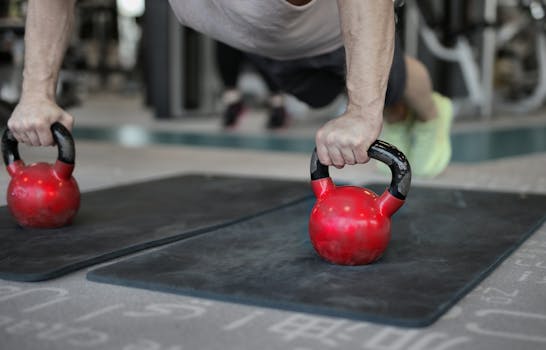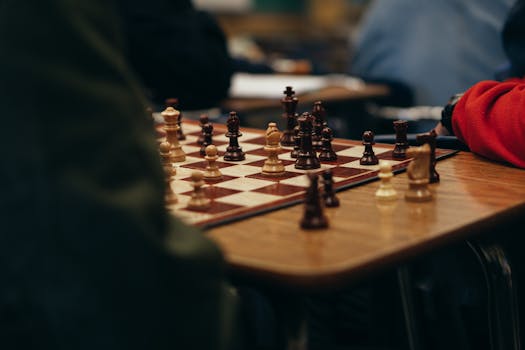Embracing a Balanced Lifestyle: Your Guide to Wellness and Fulfillment
Takeaways: In today’s fast-paced world, leading a balanced lifestyle is essential for physical and mental well-being. This guide provides actionable tips on mental health, physical fitness, nutrition, and self-care practices that can help you achieve a fulfilling life. Embrace these strategies to enhance your overall quality of life.
Understanding the Concept of a Balanced Lifestyle
Defining a Balanced Lifestyle

The Importance of Balance
In our modern society, many people face overwhelming stress due to work demands, family responsibilities, and social pressures. Achieving balance is crucial to avoid burnout and maintain a positive outlook on life. A balanced lifestyle fosters resilience, adaptability, and satisfaction, enabling individuals to thrive rather than just survive.
Components of a Balanced Lifestyle
A balanced lifestyle encompasses several key components: physical health, emotional wellness, social connections, and personal development. Each element plays a vital role in contributing to overall well-being, and neglecting one can lead to an imbalance that affects the others.
Mental Health and Well-Being
Identifying Stressors

Practicing Mindfulness
Mindfulness is a powerful tool for enhancing mental health. It involves being fully present in the moment and observing your thoughts and feelings without judgment. Techniques such as meditation, deep breathing, and yoga can help cultivate mindfulness, reducing anxiety and promoting emotional resilience.
Setting Boundaries
Establishing healthy boundaries is essential for maintaining mental well-being. Learn to say no to commitments that drain your energy and prioritize activities that bring you joy and fulfillment. Setting boundaries also applies to digital consumption; limit your time on social media to reduce feelings of inadequacy and comparison.
Physical Fitness and Activity
Importance of Regular Exercise

Finding the Right Fitness Routine
Choosing the right type of exercise is crucial for sustainability. Explore various activities such as running, swimming, cycling, or group classes to find what you enjoy. Incorporating variety into your routine can keep you motivated and engaged, making it easier to stick with your fitness goals.
Incorporating Movement into Daily Life
Staying active doesn’t mean you have to spend hours at the gym. Look for opportunities to incorporate movement into your daily routine, such as taking the stairs instead of the elevator, walking during lunch breaks, or engaging in active hobbies like dancing or gardening.
Nutrition and Healthy Eating
The Role of Nutrition in a Balanced Lifestyle

Meal Planning and Preparation
Meal planning can simplify healthy eating. Dedicate time each week to plan your meals, create a shopping list, and prepare healthy snacks. This proactive approach reduces the temptation to opt for unhealthy convenience foods and supports better dietary choices.
Listening to Your Body
Pay attention to your body’s hunger and fullness cues. Eating mindfully allows you to enjoy your meals and recognize when you’re satisfied. Avoid emotional eating by finding alternative coping strategies, such as engaging in a hobby or practicing mindfulness.
Self-Care Practices for a Balanced Life
Understanding Self-Care
Self-care is the practice of taking an active role in protecting and enhancing one’s well-being. It encompasses various activities that promote physical, emotional, and mental health. Prioritizing self-care is essential for maintaining balance in your life.
Creating a Self-Care Routine
Developing a consistent self-care routine can help you recharge and stay centered. Incorporate activities that you enjoy and that bring you peace, such as reading, taking baths, or spending time in nature. Schedule regular check-ins with yourself to assess your needs and adjust your routine accordingly.
The Benefits of Self-Care
Engaging in self-care has numerous benefits, including reduced stress levels, improved mood, and increased productivity. By prioritizing your well-being, you are better equipped to handle life’s challenges and support those around you more effectively.
Building Strong Relationships
The Importance of Social Connections

Effective Communication Skills
Good communication is the foundation of healthy relationships. Practice active listening, express your feelings openly, and be willing to compromise. These skills can improve your interactions and deepen your connections with others.
Balancing Social Life and Personal Time
While social connections are essential, it’s also crucial to carve out time for yourself. Find a balance between socializing and enjoying solitude, ensuring that you recharge and reflect on your own needs and desires.
Personal Development and Growth
Setting Personal Goals

Continuous Learning
Embrace a growth mindset by seeking opportunities for learning and self-improvement. This can include pursuing new hobbies, taking courses, or reading books that challenge your perspectives. Continuous learning fosters adaptability and resilience.
Reflecting on Your Journey
Regular self-reflection can help you assess your progress and identify areas for improvement. Take time to journal, meditate, or engage in discussions that promote introspection. Recognizing your growth can motivate you to continue pursuing your goals.
Conclusion

FAQs
What are some easy ways to start a balanced lifestyle?

How can I manage stress effectively?
Consider adopting mindfulness practices, engaging in physical activity, and ensuring you take breaks throughout your day. Establishing a support network of friends and family can also help alleviate stress.
Is it essential to have a strict routine for a balanced lifestyle?
No, while routines can provide structure, it’s essential to remain flexible. Listen to your body and adjust your activities according to your needs and circumstances.
Can I still enjoy indulgences while maintaining a balanced lifestyle?
Absolutely! Balance means enjoying treats in moderation while prioritizing overall healthy habits. It’s about making conscious choices that align with your wellness goals.
How often should I reassess my lifestyle choices?
Regularly reassess your lifestyle choices—consider doing this every few months. Reflecting on your progress and making adjustments can help maintain balance as your circumstances change.
Sources
- Healthline: What is a Balanced Diet?
- Psychology Today: Mindfulness
- Verywell Mind: What is Self-Care?






